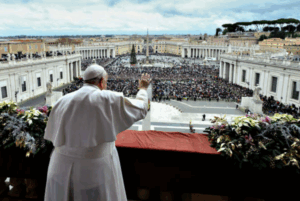Could South Korea’s democracy be in jeopardy ? On Tuesday evening, South Korean President Yoon Suk-yeol provoked widespread outrage by announcing the introduction of martial law, an exceptional measure suspending civil liberties. Six hours later, in the face of a popular and political outcry, he backed down. This attempted coup, as brief as it was chaotic, plunged the country into a major political crisis.
Declaration of martial law: a dramatic twist
On the evening of Tuesday 3 December, South Korean President Yoon Suk-yeol decided to speak live on television. He announced, to the surprise of all, the introduction of martial law. In just a few sentences, the President plunged the country into a political crisis that lasted six hours. To justify his out-of-the-blue decision, he claimed that he wanted to « eradicate pro-North Korean forces and protect the democratic constitutional order ». However, it soon became clear that these accusations were unfounded. The law was imposed after the opposition-dominated parliament opposed several government bills, including the Budget Bill.
Last declared in 1979 following the assassination of dictator Park Chung-hee in a coup d’état, the law allows the military to temporarily establish a state of emergency. Specifically this law suspended certain fundamental civil liberties, such as freedom of expression, while granting extensive powers to the military to ‘maintain public order’. This law has not been used since a stable democracy was established in the country in the 1980s. Its reintroduction sent shockwaves through a society that had long considered such measures a relic of the past.
A look back at South Korean history: why was the Martial Law so scary ?
Martial law carries a heavy historical weight in South Korean history. The President’s decision is reminiscent of the dark years of military dictatorship. At the end of the Korean War in 1953, the South experienced a succession of authoritarian governments, which regularly imposed this law to subjugate its citizens.
Even decades later, Koreans still have painful memories of this period. The the current generation, having lived through the democratisation of the country, see martial law as a symbol of a return to authoritarian practices. Consequently, imposing this measure is seen as a direct threat to democracy and civil liberties.
A popular and political uproar
The reaction to this announcement was immediate and widespread. Thousands of demonstrators gathered outside Parliament, which was then protected by soldiers, to protest against the measure. Simultaneously MPs also rushed to their places of work to remedy the situation. They voted unanimously to repeal the Martial Law (190 votes to 0), overturning the President’s decision. Within a few hours, the soldiers deployed were withdrawn. The President, once again taking the floor, announced the abolition of the law.
As a result of these efforts, all the political parties denounced this action as illegal and undemocratic. They are now demanding Yoon Suk-yeol’s resignation, threatening to initiate impeachment proceedings if he refuses to do so.
National consequences and international reaction
Despite the swift revocation of the law, tensions within the country have not calmed. The opposition parties have tabled an impeachment motion, which requires the support of two-thirds of parliament to pass. His prime minister, Han Duck-soo, would then temporarily take his place. This would represent a major upheaval in South Korean politics, leading to a period of political instability.
This unprecedented situation has attracted the attention of the international community, causing tensions at this level too. The United States, Japan, China and the United Kingdom have expressed their concern about the crisis. In particular, the US have welcomed the annulment of the Martial Law, calling for respect for the rule of law.

The situation will continue to be closely monitored over the coming days. For now, South Korean society has been weakened, causing concern to everyone, both within the country and among its neighbours and allies. If the impeachment motion is adopted, South Korea could face a decisive turning point for the future of its democracy, potentially leading to a constitutional crisis.










